
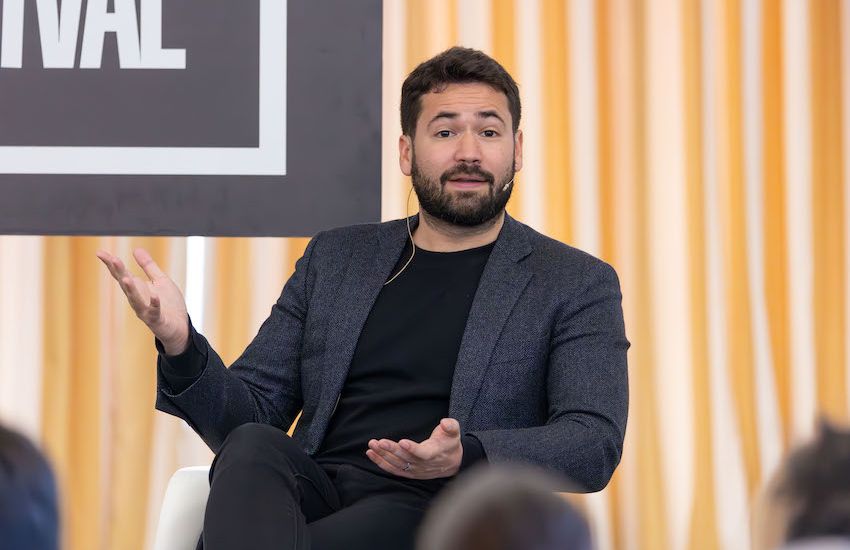

Digital technology is playing an ever more important role in society, but without the rules needed to hold those in control of it to account.
Action is needed, according to acclaimed author, Jamie Susskind, who believes that with the right regulations we can maintain freedom and democracy in a digital age.
From self-driving cars to social media, from AI being used in identifying skin cancer to drawing up legal documents, we are increasingly surrounded by digital technology.
“Those who engineer our great social media platforms, or the devices which we use to live a meaningful life, they are writing the rules by which we interact with each other, and live out our lives as human beings,” he told an audience at The Guernsey Literary Festival.
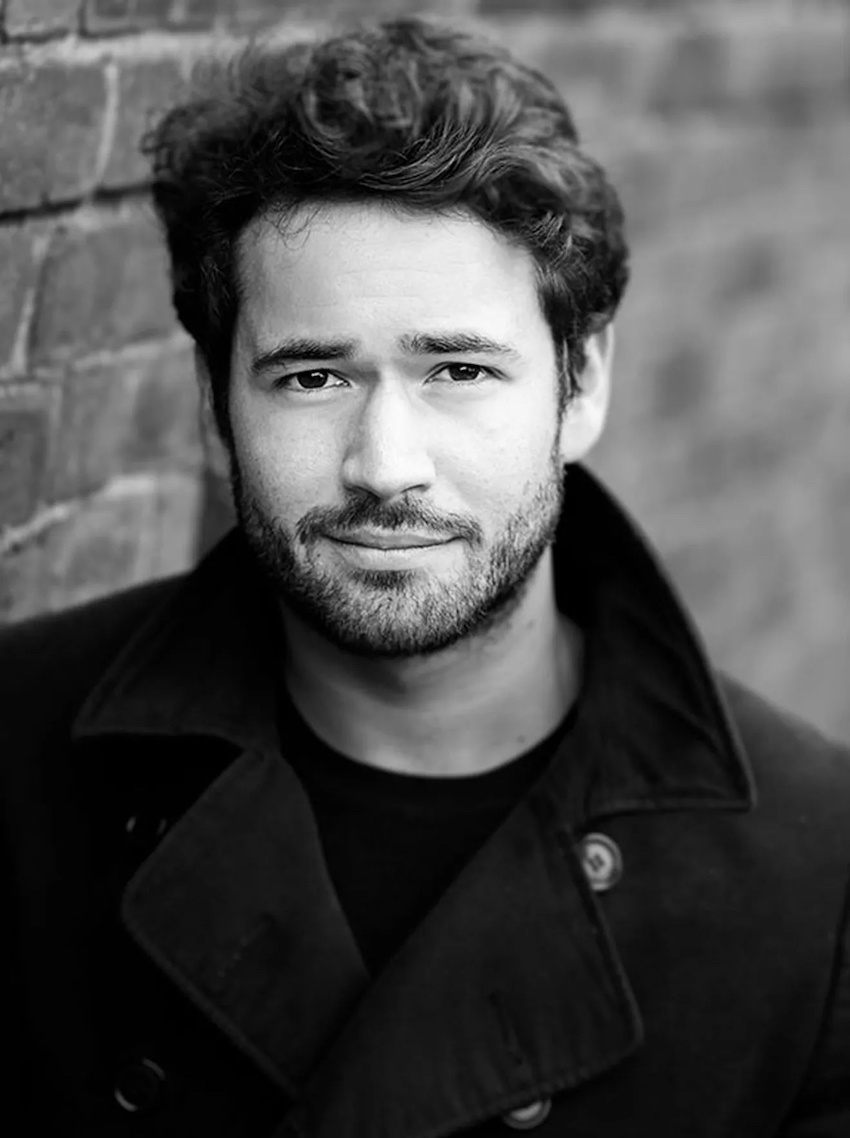
Pictured: Jamie Susskind.
“Now, if you look in the politics, law and philosophy textbooks in the 20th century, you will not find this form of power there because it didn't exist, it is new, and crucially it’s growing.
“What we have in society is a new and strange form of power, but we haven't yet done the thing that we normally do when there is power in society, which is to create mechanisms of holding it accountable.”
With other roles with social responsibility, the law imposes other responsibilities.
“Think of a doctor, think of a lawyer, think of a parent in relation to their child, think of a banker in relation to their clients and the money they hold on their behalf. In none of those cases does the law say, ‘let's just hope that the more powerful or responsible person does the right thing, let's trust them, let’s hope that they are wise and kind’.
“In every case, the law imposes duties. A doctor owes a duty of care to their patients. Bankers owe fiduciary duties to their clients. Parents have special duties to their children. Lawyers are regulated in a way that means they're expected to act with probity and integrity and honesty and so forth. And yet there is more regulation of that kind on your local pharmacist than there is on the person who is designing and engineering the great social media platforms that are reshaping our democracies. We got it wrong.”
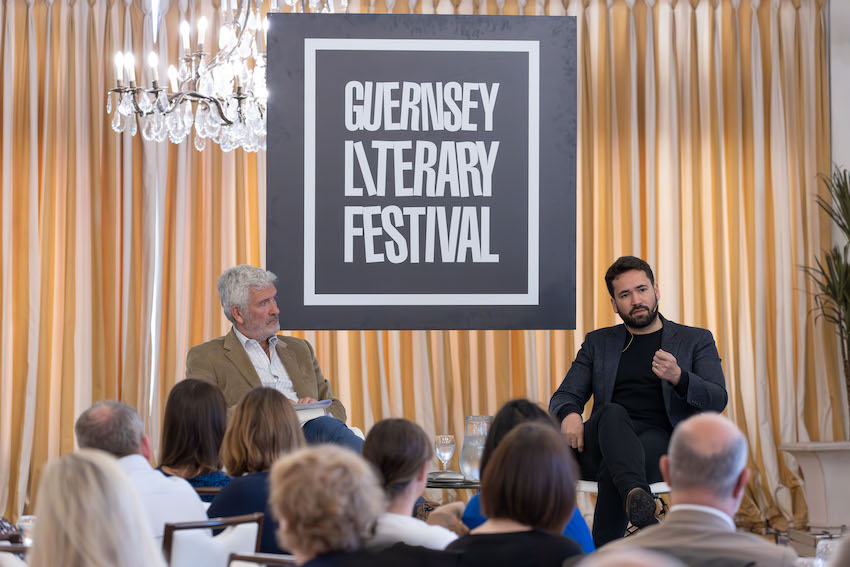
Pictured: Jamie Susskind (r) in conversation with Guernsey Literary Festival chairman Rob Shepherd. Picture by Chris George.
There is an approach to digital technology where we basically say it is everybody for themselves, he said.
It was weird, for instance, that the primary defence against the awesome power of technology was a little pop up box that says “do you consent?” which no-one reads and even if they did would find of little use as a guide to our rights.
“More crucially, those things are a relic from the past, from a time where both parties of equal stature would enter into a negotiation about the terms of their interaction. But we know that's not how it works with technology companies and many others. They present a set of terms and conditions and if you accept them, fine, but if you don't, what are you going to do? Write to the chief executive or the general counsel of Google and say, ‘actually, I'd like to renegotiate the terms on which I use your service’.”
Susskind has taken different areas of digital technology - like big data and machine learning systems, social media platforms, blockchain technology and so-called artificial intelligence systems - and proposed what a system of rules, regulations and standards might look like for each one.
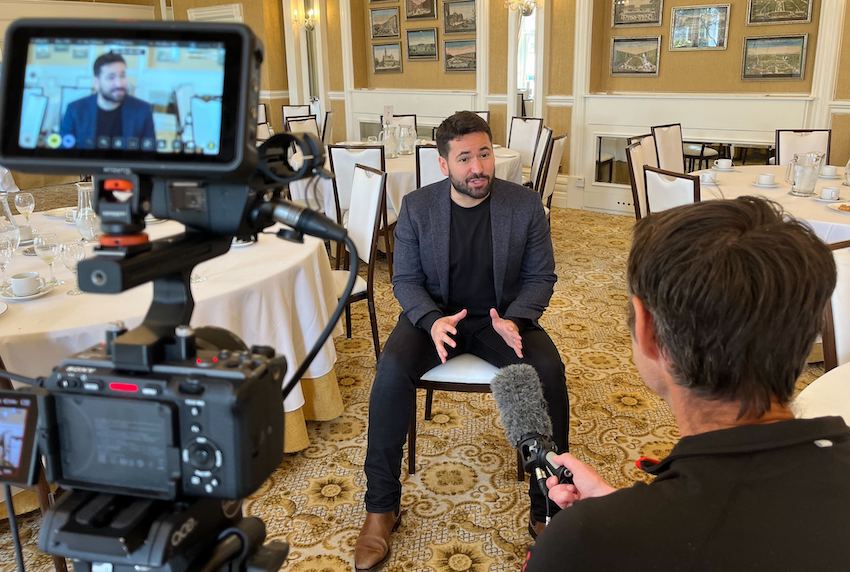
Pictured: Jamie Susskind talks to Spike Media's Warren Mauger after his presentation at the Guernsey Literary Festival.
He argues for a system that was not restrictive, but one that would create more freedom than there was.
“What the law does, if it's done right, is make us freer, because it stops other people from being allowed to predate on us. So if you live in a lawless society, you might think that it was all very free. But in reality, you'd be cowering in your houses as gangs of roving thugs who happen to have the biggest weapons were going around outside. And so in reality, a lawless world is one in which the powerful are able to subjugate the powerless. So I tried to say what's the right amount of law to have, so that you rebalance that, but without going too far?”
He said that we should not have digital technologies that fundamentally transform the way we live in ways that might be adverse to us without some kind of democratic deliberation or thinking about it.
Social media platforms should have in place adequate systems for meeting certain goals, for example.
“It is for Parliament to decide on what those goals are, but there might be, for instance, the reduction of terrorist content, the reduction of foreign interference in the democratic process, the reduction of obvious and malicious falsehoods,” he said.
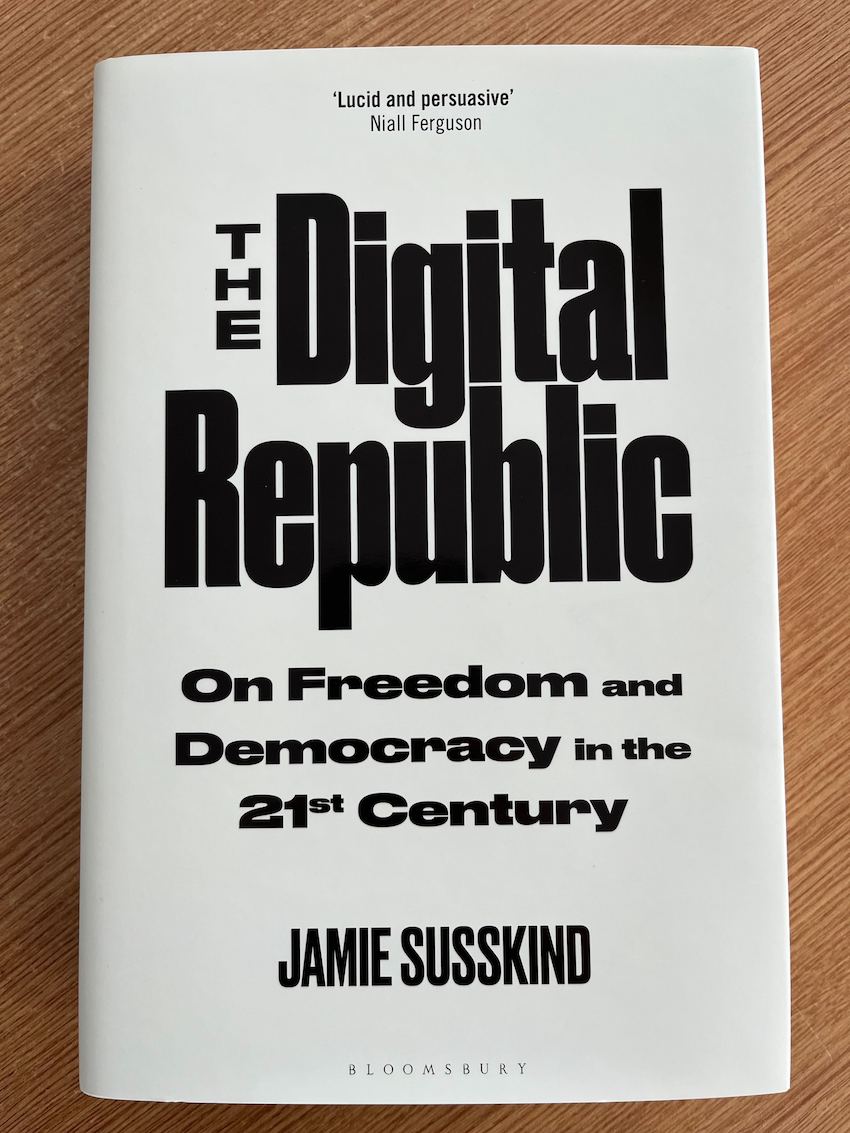
“So I don't think you should ever have governments involved in saying, ‘you shouldn't have blocked that person or you shouldn't have promoted that item’, etc., but what you have is platforms under a duty to show once a year or so, they want to keep their licence like a broadcaster, that what they have in place are adequate or proportionate or reasonable systems.
“Now, systems don't work every time. There are systems that meet those goals. And it's for them to show the regulator that they've done that. That's borrowing from a number of different regulatory systems that we have in place in other sectors, the nuclear industry is one of them. But then the broadcast industry is another.”
What the EU, US and China does will shape the tech industry profoundly, he said.
Jamie Susskind is the author of The Digital Republic. He was talking at a Guernsey Literary Festival breakfast event at the OGH sponsored by Butterfield.
Comments
Comments on this story express the views of the commentator only, not Bailiwick Publishing. We are unable to guarantee the accuracy of any of those comments.